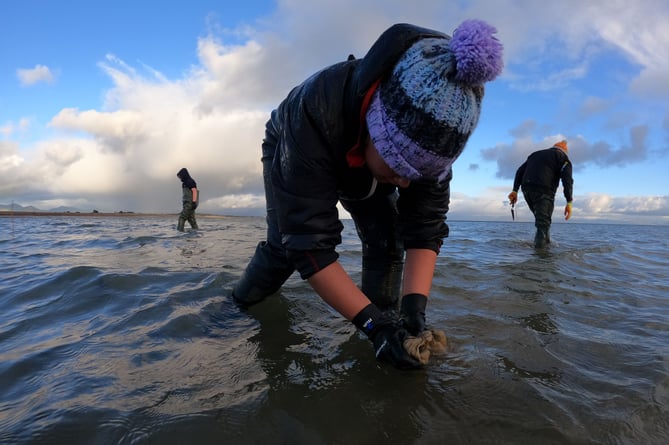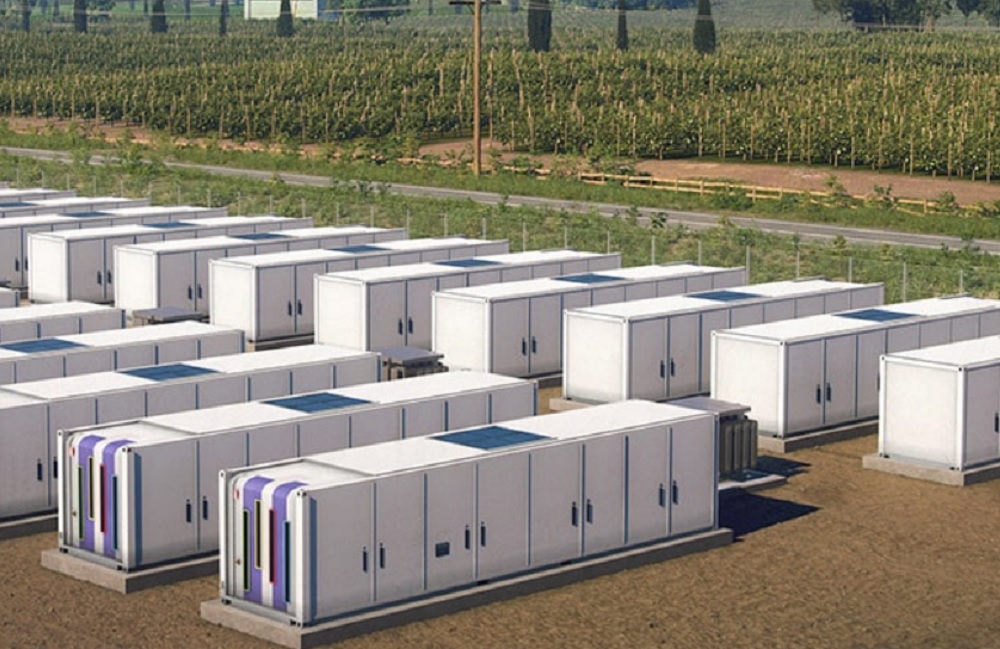Investing In Scotland's Future: The Role Of Seagrass Planting In Coastal Regeneration

Table of Contents
The Ecological Importance of Seagrass in Scottish Waters
Seagrass meadows are often overlooked, yet they are vital components of Scotland's marine ecosystems. Their ecological significance extends far beyond their gentle swaying in the currents.
Biodiversity Hotspots
Seagrass meadows function as biodiversity hotspots, providing critical habitats for an array of marine species, many of commercial importance. These underwater prairies act as:
- Nursery grounds: Providing safe havens for juvenile fish like cod, plaice, and sole, crucial for replenishing fish stocks.
- Refuge for invertebrates: Offering protection for a vast array of invertebrates, including shrimp, crabs, and worms, forming the base of the food web.
- Foraging grounds for seabirds: Supporting populations of seabirds who rely on the abundant life within and around the seagrass beds for sustenance.
The ecological significance of these species is undeniable. For example, the commercially important brown shrimp ( Crangon crangon ) relies heavily on seagrass beds for shelter and food, contributing significantly to Scotland's fishing industry. The presence of seagrass directly impacts the overall health and productivity of the entire marine ecosystem.
Carbon Sequestration ("Blue Carbon")
Beyond their biodiversity support, seagrass meadows are exceptionally efficient carbon sinks, playing a vital role in mitigating climate change. They are often referred to as "blue carbon" ecosystems because of their significant carbon sequestration capabilities.
- Higher sequestration rates: Seagrass meadows sequester carbon at a rate significantly higher than many terrestrial ecosystems, effectively drawing down atmospheric CO2.
- Long-term carbon storage: Carbon is stored not only within the seagrass itself but also within the sediment beneath, offering long-term carbon storage solutions.
Studies estimate that Scottish seagrass meadows have the potential to sequester considerable amounts of carbon annually, making them a potent weapon in the fight against climate change. Their carbon storage capacity rivals, and even surpasses, that of many tropical rainforests.
Coastal Protection
Seagrass beds act as natural barriers, significantly reducing wave energy and offering substantial coastal protection. Their presence translates to:
- Reduced coastal erosion: The dense root systems of seagrass stabilize sediments, preventing erosion and protecting coastlines from the relentless battering of waves.
- Mitigated storm damage: Seagrass meadows act as a buffer against storm surges, lessening the impact of extreme weather events on coastal communities and infrastructure.
- Protected infrastructure: This natural protection saves millions in coastal infrastructure maintenance and repair costs over time.
The physical mechanism is straightforward: seagrass slows down wave energy, reducing its erosive power. This protection is particularly crucial in Scotland, where many communities are situated along vulnerable coastlines.
Seagrass Planting Initiatives in Scotland
Recognizing the immense value of seagrass, several initiatives are underway to restore and expand these vital ecosystems across Scotland.
Current Projects and Organizations
Several organizations are spearheading seagrass planting projects across Scotland's diverse coastal regions. These include:
- [Organization Name 1]: Focusing on [Location] using [Methodology]. [Website Link]
- [Organization Name 2]: Implementing projects in [Location] with a focus on [Methodology]. [Website Link]
- [Organization Name 3]: Conducting research and restoration efforts in [Location]. [Website Link]
(Note: Replace bracketed information with actual details of ongoing projects and organizations.) These efforts employ a variety of techniques, from seed dispersal to transplanting established seagrass shoots, each tailored to the specific site conditions.
Challenges and Opportunities
While the potential benefits are immense, seagrass restoration faces challenges:
- Funding limitations: Securing sufficient funding for large-scale restoration projects remains a significant hurdle.
- Suitable site identification: Identifying suitable locations for seagrass planting requires careful consideration of factors like water quality, sediment type, and light availability.
- Monitoring techniques: Effective monitoring is crucial to assess the success of planting efforts and adapt strategies as needed. This requires investment in advanced monitoring technology and expertise.
- Community engagement: Successful seagrass restoration initiatives require strong community engagement and support.
The opportunities for future expansion are equally significant. Increased government funding, private investment, and active community participation are crucial for overcoming these challenges and expanding seagrass restoration efforts throughout Scotland's coastal regions.
The Economic Benefits of Seagrass Regeneration
The benefits of seagrass regeneration extend beyond ecological improvements, impacting the Scottish economy positively.
Fisheries and Aquaculture
Seagrass restoration significantly boosts sustainable fisheries and aquaculture:
- Increased fish stocks: The restored habitats provide breeding grounds and refuge, leading to increased fish populations.
- Improved shellfish yields: Seagrass meadows support thriving populations of shellfish, benefiting the aquaculture industry.
- Enhanced ecosystem services: A healthier ecosystem provides numerous benefits, including improved water quality, reducing the costs associated with maintaining healthy aquaculture operations.
The resulting increase in fish and shellfish stocks translates directly into economic benefits for fishing communities and aquaculture businesses.
Tourism and Recreation
Healthy seagrass meadows enhance the aesthetic appeal of Scotland's coastline, boosting tourism:
- Ecotourism opportunities: Seagrass meadows attract divers, snorkelers, and other ecotourists, generating revenue for local businesses.
- Recreational activities: The restored coastal areas provide opportunities for kayaking, paddleboarding, and other recreational activities.
- Increased property values: Properties located near healthy coastal ecosystems often command higher prices.
This increased tourism activity stimulates the local economies, creating jobs and generating revenue for businesses and communities.
Carbon Credits and Ecosystem Services
Seagrass restoration presents opportunities to generate revenue through carbon markets:
- Blue carbon markets: Selling carbon credits generated through seagrass carbon sequestration offers a new revenue stream.
- Payment for ecosystem services: Organizations and governments may pay for the ecosystem services provided by restored seagrass meadows.
- Offsetting carbon emissions: Companies can offset their carbon footprint by investing in seagrass restoration projects.
This innovative approach can attract investment and incentivize further seagrass restoration efforts, fostering a sustainable and economically viable approach to coastal management.
Conclusion
Seagrass planting is not merely an environmental endeavor; it is a strategic investment in Scotland's future. Restoring these vital ecosystems offers a wealth of benefits: enhanced biodiversity, strengthened coastal protection, mitigated climate change, and stimulated economic growth. From carbon sequestration to supporting sustainable industries, the advantages are undeniable. Let's work collaboratively to champion and expand seagrass planting initiatives throughout Scotland, ensuring a healthier, more resilient coast for generations to come. Invest in Scotland's future – invest in seagrass planting and the restoration of our vital coastal ecosystems.

Featured Posts
-
 The Kevin Holland Story A Look At His Meteoric Rise And Subsequent Struggle
May 04, 2025
The Kevin Holland Story A Look At His Meteoric Rise And Subsequent Struggle
May 04, 2025 -
 Belgium Securing Funding For A 270 M Wh Battery Energy Storage System Bess
May 04, 2025
Belgium Securing Funding For A 270 M Wh Battery Energy Storage System Bess
May 04, 2025 -
 Cruel Stepfather Charged With Murder Of 16 Year Old Stepson
May 04, 2025
Cruel Stepfather Charged With Murder Of 16 Year Old Stepson
May 04, 2025 -
 Nigel Farage And Rupert Lowe Clash Leaked Texts Expose Bitter Feud
May 04, 2025
Nigel Farage And Rupert Lowe Clash Leaked Texts Expose Bitter Feud
May 04, 2025 -
 Kanye Wests Wife Bianca Censori In A Bold Roller Skating Look
May 04, 2025
Kanye Wests Wife Bianca Censori In A Bold Roller Skating Look
May 04, 2025
Latest Posts
-
 Nyc Filming Bradley Cooper Directs Will Arnett For Is This Thing On Photo 5133886
May 04, 2025
Nyc Filming Bradley Cooper Directs Will Arnett For Is This Thing On Photo 5133886
May 04, 2025 -
 Is This Thing On New Photos Show Bradley Cooper Directing Will Arnett In Nyc
May 04, 2025
Is This Thing On New Photos Show Bradley Cooper Directing Will Arnett In Nyc
May 04, 2025 -
 Izmena Druzhby Bredli Kuper I Leonardo Di Kaprio Prichina Konflikta
May 04, 2025
Izmena Druzhby Bredli Kuper I Leonardo Di Kaprio Prichina Konflikta
May 04, 2025 -
 Raskol Druzhby Pochemu Kuper I Di Kaprio Perestali Obschatsya
May 04, 2025
Raskol Druzhby Pochemu Kuper I Di Kaprio Perestali Obschatsya
May 04, 2025 -
 Bredli Kuper I Leonardo Di Kaprio Istoriya Razrushennoy Druzhby
May 04, 2025
Bredli Kuper I Leonardo Di Kaprio Istoriya Razrushennoy Druzhby
May 04, 2025
